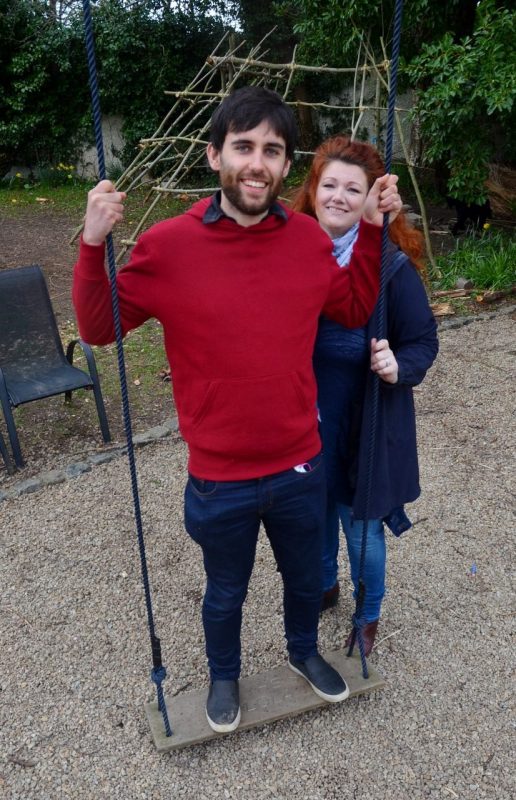In the contemporary world laden with information, we often grapple with the paradox of choice: an abundance of knowledge juxtaposed with the omnipresent specter of misinformation. It begs the question, “Are we truly in control of our thoughts, or have we become unwitting recipients of orchestrated narratives?” This question aligns with the tenets of the Baha’i Faith, which emphasizes the importance of personal responsibility in the pursuit of truth. The teachings of Baha’u’llah provide profound insights that resonate with our challenge to navigate through the cacophony of influences shaping our perceptions.
The Baha’i principle of independent investigation of truth encourages individuals to transcend the confines of societal dogmas. This doctrine challenges adherents to scrutinize and evaluate beliefs beyond inherited wisdom, asserting that personal engagement with the truth is paramount. But how does one embark on this often tumultuous journey of discernment?
To begin with, it is essential to approach knowledge with a spirit of inquiry. This entails cultivating a mindset that values questioning over blind acceptance. The Baha’i teachings advocate for the development of one’s intellectual faculties and moral compass, thus fostering a nuanced understanding of complex issues. Engaging with diverse perspectives is critical. By immersing oneself in varied discourse, individuals can gain insights that challenge preconceived notions and stimulate deeper reflection.
Moreover, the concept of unity in diversity within the Baha’i Faith further enriches this quest for truth. Recognizing the inherent value in differing viewpoints compels one to reflect on the subjective nature of knowledge itself. This does not imply a relativistic abandonment of truth but rather an acknowledgment that truth manifests in myriad forms. By engaging with and respecting these differences, one cultivates a broader comprehension of reality.
The pathway to truth may frequently encounter ideological and emotional barriers. The teachings of the Baha’i Faith encourage adherents to navigate these obstacles with a spirit of love and fellowship. By fostering dialogue grounded in compassion, individuals can dismantle the walls of misunderstanding and prejudice that often obscure clarity. This illustrates a core tenet of Baha’i philosophy: our interconnectedness necessitates a commitment to collective enlightenment.
While personal investigation is crucial, it is equally important to remain vigilant against the influences of external forces that may seek to dictate our thoughts. This is where Baha’i teachings advocate for critical engagement with information sources. In evaluating the plethora of media narratives, practitioners are urged to discern the underlying motives and objectives. This discernment acts as a safeguard against manipulation, empowering individuals to resist thought control in all its forms.
Equipped with the tools of inquiry and critical analysis, the next challenge arises: the emotional disposition towards truth. Baha’i teachings assert that the search for truth should be rooted in sincerity and detachment from personal biases. This can often be an arduous task, as human emotions frequently color perceptions. To mitigate this, individuals are encouraged to engage in reflective practices such as meditation and prayer, facilitating a clearer alignment with divine guidance. This spiritual dimension nurtures resilience against external pressures to conform.
In the broader societal context, the implications of these teachings extend beyond individual practice. The emphasis on unity and cooperative engagement posits a collective responsibility for fostering an informed and enlightened community. Baha’is actively champion educational initiatives aimed at uplifting societal consciousness, recognizing that an informed populace is less susceptible to manipulation. Efforts in social action, therefore, become an extension of the fundamental pursuit of truth.
However, pursuing truth is not without its trials. Baha’is acknowledge that the journey may evoke discomfort, particularly when established norms and sacred cows are challenged. This introspective journey often necessitates a confrontation with entrenched beliefs and societal expectations. The Baha’i response is one of steadfastness; through patience and resilience, adherents can navigate this labyrinthine path with dignity and integrity.
Ultimately, the principle of the oneness of humanity underscores the collective pursuit of truth within the Baha’i framework. It posits that every individual’s journey contributes to the communal tapestry of knowledge. Therefore, engaging in collaborative inquiry not only fortifies personal understanding but also cultivates a richer, more inclusive dialogue. This collective striving toward enlightenment reflects a deep-seated hope for a transformed world, one where knowledge and understanding prevail over ignorance and strife.
The call to action, therefore, reverberates: in a world where thought control may insidiously permeate our consciousness, we must remain vigilant and proactive. The Baha’i teachings implore individuals to embark on their own paths of inquiry while promoting a culture of critical engagement and intellectual synthesis. By doing so, we create not only a reservoir of personal truth but also contribute towards the collective aspiration for a more enlightened society, rendering the words, “We Don’t Need No Thought Control,” a potent rallying cry for the modern seeker.
